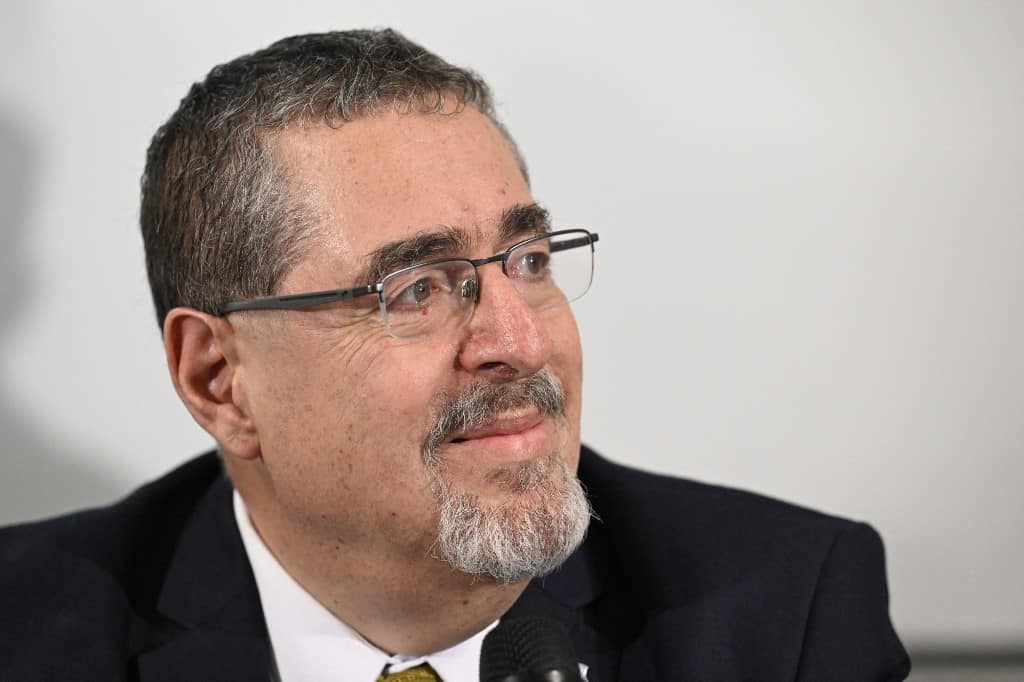Guatemala’s president-elect, the social democrat Bernardo Arévalo, denounced on Friday the existence of a “coup d’état” plan to prevent him from taking office in January 2024 after winning the runoff on August 20.
“There is a group of corrupt politicians and officials who refuse to accept this result [of the runoff] and has set in motion a plan to break the constitutional order and violate democracy,” said Arévalo four days after the judiciary disqualified his Semilla party.
“We are seeing an ongoing coup d’état,” Arévalo added at a press conference, son of a president who left a mark on the country, and who won the runoff with 58% of the vote with the promise of a frontal fight against corruption, an endemic evil in the country.
His broad victory is attributed to generating hopes of change in a country mired in poverty, violence and corruption, which induce thousands of Guatemalans to emigrate each year. But his rise to power has alarmed the political and business elite, accused of being corrupt.
“We are seeing an ongoing coup d’état, in which the justice system is being used to violate justice itself, mocking the popular will freely expressed at the polls on August 20,” Arévalo continued.
“These actions constitute a coup d’état that is being promoted from the institutions that should guarantee justice in our country, headed by the attorney general, Consuelo Porras, the prosecutor Rafael Curruchiche and the judge Fredy Orellana, as well as the board of directors of Congress and other corrupt and anti-democratic actors,” he added.
More than a week ago, the authorities reinforced the president-elect’s security amid reports of a possible attack against him, at the request of the Inter-American Commission on Human Rights (IACHR).
They weaken authority
Having been disqualified, Semilla cannot carry out any activity, such as making statements, raising money or recruiting members.
In addition, its 23 new deputies will have reduced powers, as they will not be able to form a parliamentary group, chair commissions, participate in the preparation of the Congress agenda or have paid advisers.
“They are weakening and denying the resources, authority and legitimacy that the people of Guatemala have legally conferred upon us,” said Arévalo.
“It may be that they are using (the prosecution) as an element of pressure to guide him to negotiate, but on spurious bases, to give them impunity or quotas of power” to the mafias of corruption, independent analyst Luis Linares told AFP.
“If Semilla loses its legal status, the only implication is that its deputies would not assume as members of a parliamentary group. It does not affect the inauguration of the deputies, much less of the president and vice president because it would not have a retroactive effect of canceling the nominations,” Linares said.
“We warn the people of Guatemala that there are still four months left for the inauguration, four months during which these political mafias will try to consummate the coup,” Arévalo added.
The crusade against Semilla was launched by prosecutor Curruchiche after Arévalo surprised in the first round of elections on June 25 and went to the runoff with former first lady Sandra Torres, who was seen as the candidate for continuity despite being nominally a social democrat.
“As elected president of the Republic I make a call to […] all Guatemalans who reject corruption and authoritarianism to join forces in defense of democracy,” Arévalo insisted.
A sociologist and 64-year-old congressman, Arévalo must take office on January 14, 2024, replacing Alejandro Giammattei, which will close a 12-year cycle of right-wing governments.
He is the son of reformist President Juan José Arévalo (1945-1951), one of the leaders of Guatemala’s democratic “spring”, which ended when his successor Jacobo Árbenz was overthrown in 1954 by a military rebellion orchestrated by the United States.
OAS meeting in Washington
In Washington, the head of the OAS Electoral Mission in Guatemala, Eladio Loizaga, also warned this Friday about a possible “breakdown of the constitutional order in Guatemala” due to the actions against Arévalo’s party.
“The implications of these decisions [by the Guatemalan judiciary] are still unclear, although various actors have insinuated that the intention is precisely to prevent the adjudication of positions to the electoral authorities,” Loizaga said.
This “would definitely be a breakdown of the constitutional order and a breach of the citizen’s will emphatically expressed at the ballot box” in the runoff, the Paraguayan former chancellor added.
Loizaga spoke at an extraordinary meeting of the Permanent Council of the Organization of American States (OAS) on Guatemala following the judicial orders, requested by the Prosecutor’s Office, against the Supreme Electoral Tribunal and Semilla, which was disqualified on August 28.
Guatemalan Chancellor Mario Búcaro, who stated that Giammattei made it possible for the elections to be held peacefully and that he is determined to hand over power in January, attended the meeting.
“The Mission considers that the abuse of legal instruments and the use of artifices continues to provoke a high degree of uncertainty in the process and puts the country’s democratic stability at risk, a situation that is also worrying,” Loizaga emphasized.






